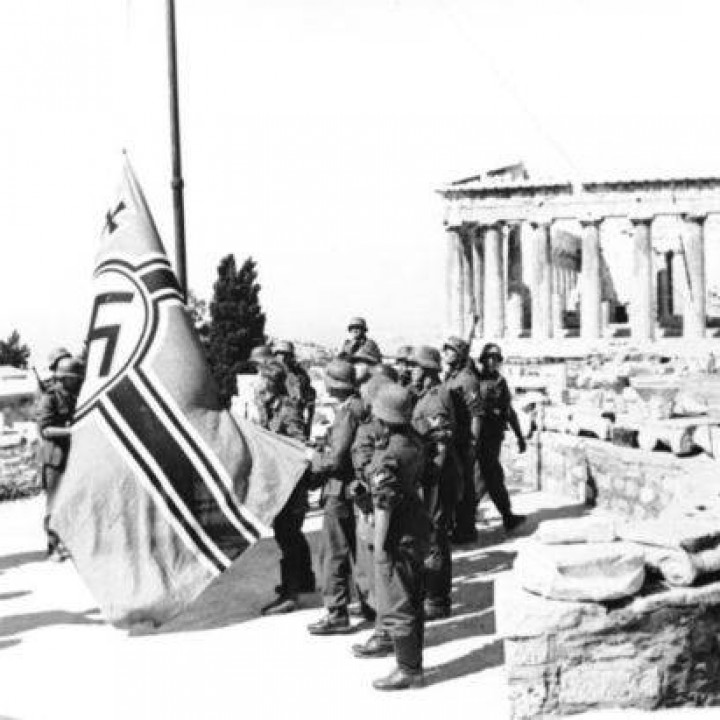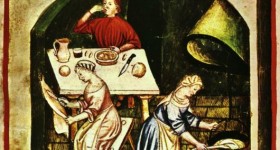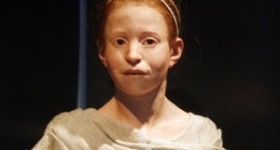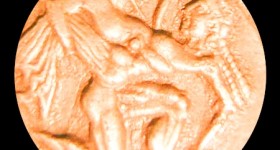Greek pride and national sovereignty

This is the first time in many years that I am proud to be Greek. Last week, my people voted for an anti-austerity party that promised to restructure the welfare state in Greece. Syriza seemingly belongs to the radical left wing. In fact it is conglomeration of left and centre political parties that have one common denominator: they despise the Troika and its economic measures that impoverished the people.
Yesterday, the minister of finance, Varoufakis, made it clear that the new government will no longer continue on the same destructive path. The path that led its middle class homeless in the streets, and its children starving. There is a new hope for Greece but the predominant feeling is that of national pride.
I have been following these expressions of pride in numerous social media, newspapers, blogs etc. Most Greek citizens treat Varoufakis as a modern hero! They ask for autographs, while I am sure he has his own groupies! It is the first time a minister of finance receives the unadulterated adoration of the public! The people are proud for his stance, as if they were the ones who stood in front of the camera and shouted F_CK THE TROIKA.
Pride has always been the determinant feeling in the construction of a national identity. Patriotism inspired the soldiers, citizens and other forces that fought for the creation of new nations. It was assisted by flags and other symbols that represented freedom, equality or other similar ideals. For the Greeks, pride is directly connected with its past.
Let us not forget the manufactured ideological connection of the modern Greek State with its ancient past. After the revolution of 1821, the Greeks, their ruling Bavarians and many other nations started spreading the myth of ancient Greece. The ancient Greek city states suddenly were treated as a united country that faced off the barbaric Persians, in a common fight for freedom, democracy and equality!
The most powerful symbol that encompasses ‘what Greece is all about’ is none other than the Acropolis. It is situated on the Holy Rock (as it is referred to), in the centre of its most famous (not to say notorious) democratic ancient city-state, Athens. It represents also the modern Greek psyche. It is featured in tourist literature, exhibitions, postcards, souvenirs, logos and anywhere else you can think of.
During the lethal economic crisis, the Acropolis resumed two conflicting symbolic roles. The roles of resistance and desperation.
You probably heard of the story of Manolis Glezos, one of the two teenagers who removed the German Nazi flag from the acropolis during the Nazi occupation (Second World War). Back then, the symbolic gesture caused the hope and pride of the local population to rise. Today Manolis Glezos is revered more than ever. Despite his advanced age, he is one of the key members of the radical left (Syriza) and a member of the European parliament. The party that was voted to bring hope back to Greece.
During the recession, in some cases, both hope and pride disappeared. The Acropolis became once more the ‘normal’ place for suicides and other acts of desperation. The Holy Rock became tainted! The ‘miasma’ spread to the rest of the country. The people went around with hunched backs, bowing in front of the inevitable loss of sovereignty.
Until these elections! My people finally voted for hope. The hope for true democracy has returned. The hope for true national sovereignty is becoming stronger. The hope to create our own destiny is becoming vital for our very existence.
The prime minister tied together all of the above through one symbolic move. A move that, for a change, did not involve the Acropolis directly. After he was sworn into government, he visited Kaisariani to leave a few flowers in remembrance of the victims of German Occupation (Second World War). The Nazi forces shot several Greeks in this area. Syriza is a supporter of a political movement that demands Germany to pay back all of the Second World Debt to Greece, including the money it ‘borrowed’. This debt was abolished after the War, in order to suppress further enmity between European nations.
Paying homage to the victims of German nazism at Kaisariani and asking for war reparations is pivotal in the 21st century fight against neoliberalism. Germany has become an anti-national symbol that garners all of the Greek forces under one flag. Varoufakis suddenly became the person/ symbol who said NO to the destructive forces. National pride surged and the people are celebrating their newfound freedom, and hope.
Everyone is aware that the road will be long, bumpy, and full of obstacles. I am sure, though, that pride will sustain those who are directly involved into the fight for national sovereignty. It is not the first time that the Greeks become the people who defend ideals such as independence, equality, social welfare. The sense of patriotism and pride helped in the past, as it will help now.







great!
How can pride be restored without agency? How can agency be achieved without the power to make economic decisions and control your own currency? The Eurozone is a bizarre project that, without fiscal unification and debt mutualisation, can only work in favour of Germany.
Greece needs to default and restore the Drachma, elect non-corrupt governments and collect taxes properly. It will be tough, but had it been done five years ago, things would be much better by now.